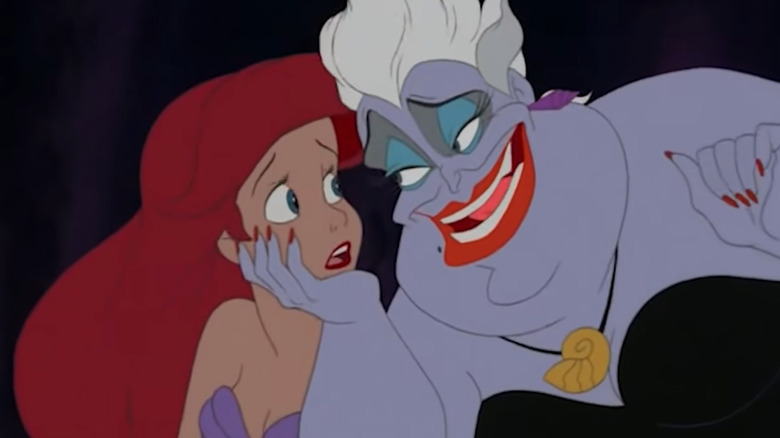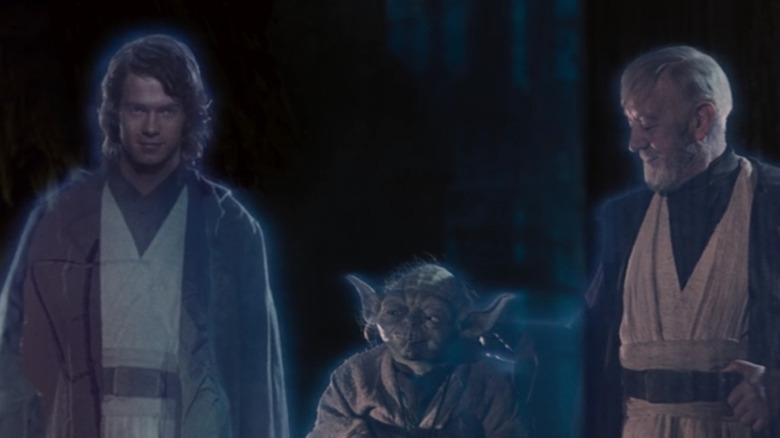
As fans wait for the live-action remake of "The Little Mermaid" to hit theaters later this year, it's worth looking back at the original animated 1989 film, directed by Ron Clements and John Musker. It's a movie that, above all else, really took advantage of the strengths of animation. The facial expressions, the colors, and the character designs, are all used to emphasize the emotions of the story in a way that a live-action rarely could. There are some stories that really are best told through animation, and "The Little Mermaid" is clearly one of them.
That's part of why directors Ron Clements and John Musker chose not to change much with the remaster of the film for the 2006 DVD re-release: because the original version was already great at what it was set out to do. Yes, there'd been plenty of technological advancements in animation in the 15+ years that had passed, which was used for "a few little fixes ... little technical mistakes," as Clements put it. But for the most part, they were happy with the movie as it already was. They did not insert any scenes into the film that were cut from the original release, nor did they try to improve the animation in any major, noticeable ways.
One of the things stopping them from making too many changes was a lesson learned from the original "Star Wars" trilogy. In 1997, George Lucas infamously decided to update the old movies with modern CGI and special effects, throwing in some "improvements" (like Greedo shooting Han first) that have annoyed fans for decades now. Ron Clements and John Musker saw those "updated" movies, and others movies like them, and they were not impressed.
'Not So Wild About It'

"I get bothered when there's a film that I love and I'm watching it on cable and there's a scene that was never in it before," Clements explained. "It just shakes me up, and then they have so many versions; it's like, 'Star Wars,' if I want to see that the way I saw it when it first came out, how do I do that? I'm not so wild about that."
He has a point: if you want to watch the original "Star Wars" movies as they looked in theaters, you better hope you have a VHS tape of each of them, because otherwise, you're going to have a hard time. Finding the original version of "A New Hope" today is borderline impossible, which is particularly devastating when you realize so many of the changes made in the special editions are for the worse. The changes and additions often serve little purpose but as cheap, hackneyed fan service, or to over-explain moments that were originally handled with subtlety.
In the end, the "Little Mermaid" directors seemed to understand that it's best not to learn from your own mistakes, but from the mistakes of others before you. Rather than change too much of their movie and live to face the backlash, they looked at the backlash to Lucas's "Star Wars" changes and learned this lesson the easy way. As Clements wisely put it, "If the film turned out okay and you're happy about the way it turned out and people liked it, maybe we should just kind of leave it alone."
Read this next: Overlooked '80s Cartoon-Toy Franchises Ripe For Revival
The post The Little Mermaid's Directors Didn't Want The Film To Get A Star Wars-Style Remaster appeared first on /Film.
0 Comments